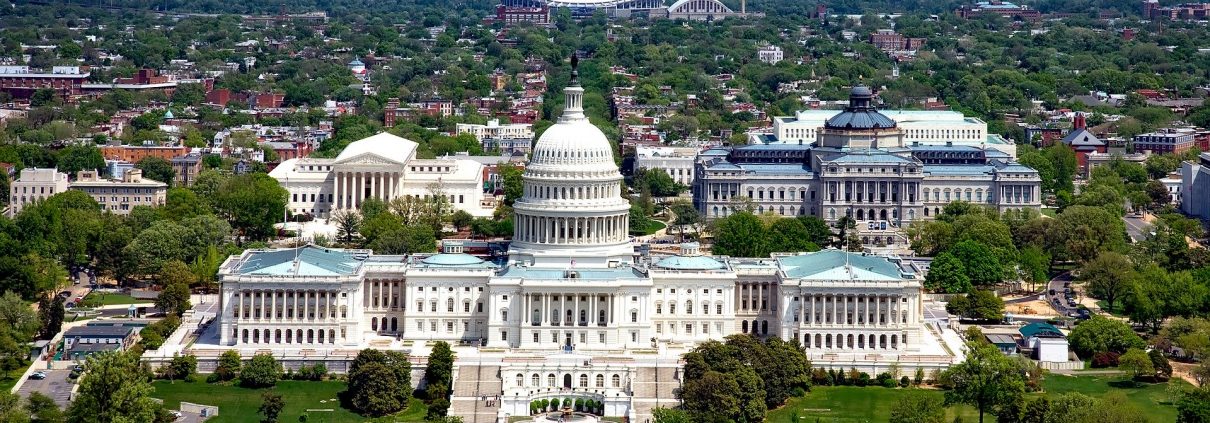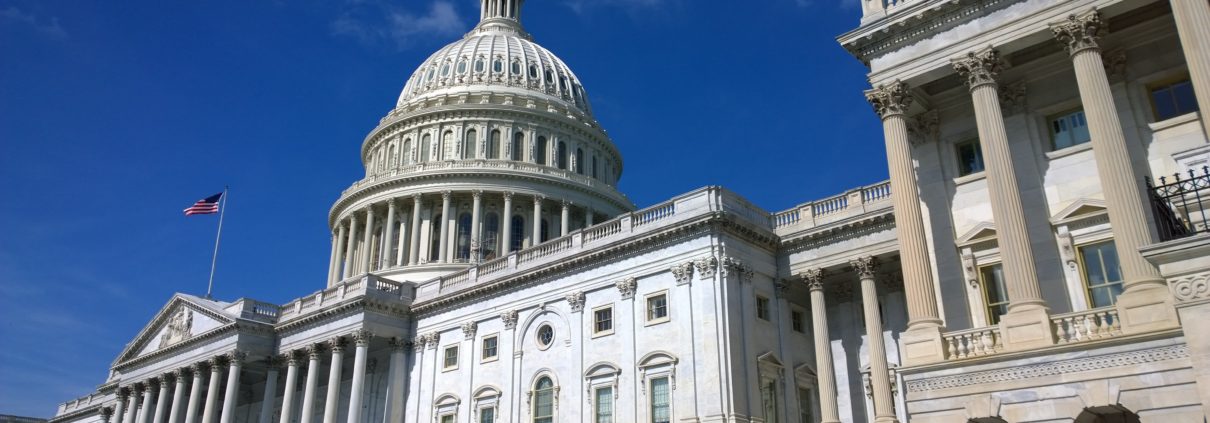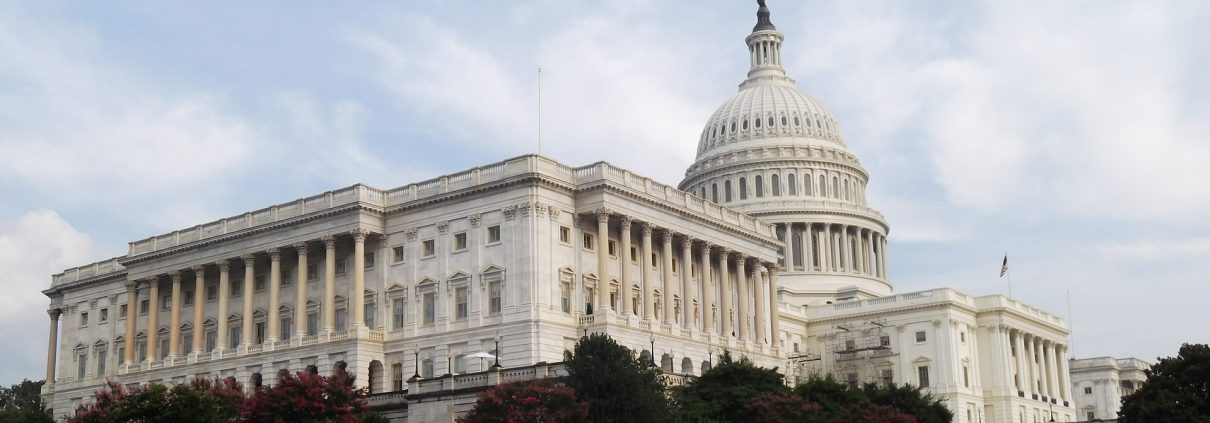Why the 1031 Exchange Should Not Be Eliminated
Internal Revenue Code Section 1031, which allows taxpayers to defer, not eliminate, payment of capital gains and recapture tax on the sale of property, has been in the Federal tax code for the past 100 years. Despite this longevity, there have been numerous proposals from elected officials to remove Sec. 1031 in order to allegedly “close a tax loophole” or pay for another government program. So far, in each of these instances, this battle-tested provision of the tax code has passed the challenge of scrutiny but only after lawmakers took the time to understand its full economic impacts. Section 1031 impacts liquidity throughout the real estate market, has revenue implications to the Treasury as a result of a slowdown in transaction volume, and has a general positive impact on the US economy as a whole.
New Studies Show Potential Detriment of Eliminating 1031 Exchange
In response to past attempts to eliminate the Section 1031, a coalition was formed by industry giants to educate Congress on the full Section 1031 impact. Two separate impact studies were conducted: one by Ling & Petrova and one by Ernst & Young LLP. As each study delineated the financial effect of limiting or eliminating of Section 1031, the numbers articulated what pages of political soundbites might not have. Elected officials quickly came to the realization that not only was the cost of like-kind exchanges to the Treasury grossly overstated, but that an outright repeal would devastate several important industries, harm the economy as a whole, and in the end cost the government in the long run.
Both the Ling & Petrova and Ernst and Young studies address how Section 1031 creates liquidity throughout the real estate investment market, which provides incentives and support for real estate to achieve its highest and best use. The transactional activity from trading out of yesterday’s real estate to a new piece of real estate to meet tomorrow’s needs is a catalyst for a stream of economic activity, creating jobs and taxable revenue for realtors, qualified intermediaries, title companies, escrow, insurers, lenders, contractors, inspectors, appraisers, building supply vendors, etc. and generates revenue for local and state governments through transfer taxes, permitting fees, and increased tax basis from upgraded buildings and improved communities.
The 1031 Exchange Stimulates Agriculture
In addition to these studies, it is well known that Sec. 1031 stimulates America’s vital agricultural sector. Farmers and ranchers use Section 1031 to combine acreage or acquire higher grade land or otherwise improve the quality of their operations. Retiring farmers can exchange their most valuable asset, their farm or ranch, for other real estate without diminishing the value of their life savings.
Section 1031 is also used to promote conservation and environmental policies. Grants of conservation easements can be structured as tax-deferred exchanges, facilitating government and privately funded programs designed to improve water quality, reduce soil erosion, maintain wetlands and sustain critical wildlife habitat. These exchanges also enable landowners to acquire replacement farm or ranchland in less environmentally sensitive locations.
Section 1031 is an important tool in the agricultural and commercial real estate market and must be retained. It creates and preserves jobs and is used by a broad spectrum of taxpayers, from middle-class Americans, to small businesses and even large enterprises, to synergistically spur on our economy.

Key Findings from Ling & Petrova Study
- Like-Kind Exchanges Encourage Investment: On average, taxpayers using a like-kind exchange invest approximately 33% more capital than non-like-exchange investors.
- Like-Kind exchanges provide only temporary tax deferral: The overwhelming majority- 88 percent of real estate replacement properties acquired through a like-kind exchange are disposed through taxable sales, not subsequent like-kind exchanges.
- Like-Kind Exchanges lead to job creation: Real Estate acquired through a like-kind exchange is associated with greater investment in capital expenditures (i.e., job-creating property upgrades and improvements) than real estate acquired without the use of like-kind exchanges.
Key Findings from Ernst and Young Study
- Repeal of 1031 would subject businesses to a higher tax burden on their transactions, resulting in a longer holding periods (the “lock-in” effect).
- Repealing 1031 rules would slow economic growth, shrink investment and ultimately reduce gross domestic product.
- The study concludes that repeal of the 1031 would adversely impact the U.S. economy by discouraging investment, causing a reduction in GDP, a contraction in the economy, and would unfairly burden certain industries and taxpayers.
About the Author

Daniel Wagner is senior vice president of government relations for The Inland Real Estate Group of Companies, Inc. He has been a licensed real estate broker since 2004 and holds Series 7 and 63 security licenses.
Wagner serves on numerous real estate industry, and governmental boards and committees. He is a proud member of the REALTORS® Land Institute.
IRS Extends 1031 & Opportunity Zone Tax Deadlines
A message from NAR:
The IRS issued guidance Thursday evening to grant deadline relief for both 1031 like-kind exchanges and opportunity zone investments that are already underway. Both of these programs are designed to promote economic growth in communities, and NAR made the case that investors in these programs should not be harmed due to the effects of COVID-19.
- 1031 Like-kind Exchanges. If an investor has taken the first step of a like-kind exchange by selling the old property, and either the 45-day or the 180-day deadline falls between April 1 and July 15, the deadline has been extended to July 15. RLI has strongly supported this action, signing on to a letter to the Department of Treasury urging them to extend the deadline.
- Opportunity Zones. If an investor who sold a capital asset planned to roll over the gain into an Opportunity Fund and the 180-day deadline to do so falls between April 1 and July 15, 2020, he or she can make the investment as late as July 15.
Also, sole proprietors who pay quarterly estimated taxes now have until July 15 to file their second quarter payment. As a result of an earlier IRS notice, first quarter estimated tax payments had already been extended to July 15. This means that any individual or corporation that has a quarterly estimated tax payment due on or after April 1, 2020, and before July 15, 2020, can wait until July 15 to make that payment, without penalty.
NAR has advocated heavily for these extensions since the outbreak of the COVID-19 pandemic. NAR will have a full analysis of this announcement on their dedicated Coronavirus page.
RLI Lands Five Legislative Victories in 2017: Inside The Beltway
As the New Year begins, I wanted to use this edition of “Inside the Beltway” to share some successes that RLI had in 2017.
Of, course these victories would not have been possible without the hard work and active engagement of RLI Members with their members of Congress through phone calls, emails, or in-district meetings. These activities make a difference and these five victories are a testament to their civic participation and perseverance.
Greater Awareness on the Value of 1031
As the battle for tax reform and the possible reform or elimination of 1031s heated up in 2017, RLI members became the trusted source of information for Members of Congress and their staff for data on how 1031s add value to the economy. Turnover in Congress among Members and staff is constant and RLI members did an outstanding job communicating with Congressional offices about how 1031s add value to real estate in their district. While 1031s for real estate are safe as I write this column in November, 2017, it is critical that RLI members continue to reach out to Members of Congress and staff to make sure their voices are heard and 1031s are preserved.
The WOTUS Rule is Rolled Back
The Obama Administration finalized the Clean Water Rule (AKA the Waters of the U.S. Rule) in 2015. Although the WOTUS rule was never implemented, due to a judicial stay, the damage of this rule would have been far-reaching. This vastly overreaching rule would have hindered economic development in rural and urban areas, tied up farmers, ranchers, and others who work the land in rolls and rolls of red tape and bureaucracy, and would have done unfathomable harm to property rights across the country. RLI and a broad coalition of regulated stakeholders were instrumental in raising alarms about the damage this rule could do to the country’s economy. As a result, one of the first Executive Orders President Trump signed began the process for withdrawing this rule and developing a common-sense and workable definition of “Waters of the U.S.”, one that will provide the clarity needed to encourage economic development and protect our critical water resources.
Drones Take to the Sky
The first call I ever received about using drones for real estate was in 2010 from Florida RLI Member Dean Saunders, ALC, who asked me the seemingly innocent question: “Can I use a drone to take pictures of some land I am selling?” At that time, after doing a little digging on the FAA website, I determined the answer was, unfortunately for Dean, “No.” The drone landscape has changed dramatically since then. Because of consumer desire and market need for innovative technology, RLI Members pushed the FAA to allow the use of drones for commercial purposes. FAA regulations, which were finalized in late 2016, were then implemented and enforced in 2017, unleashing a torrent of market creativity. Now, drones are a regular part of the American “airscape” partly because of RLI Members insistence that this technology can be used safely and can be an important part of selling land, thereby adding value to the real estate economy.
Reforms of the ESA Continue
There was good news on Sage Grouse as well as broader reform of the Endangered Species Act (ESA). While the Obama Administration decided to not list the Sage Grouse as endangered, they did withdraw 10 million acres of public land from being used for any economic activity such as mining or timbering, claiming this land was critical habitat for the Sage Grouse. In July, President Trump reversed this withdrawal through executive order.
On the broader issue of ESA reform, Congress has — for the first time in several years — moved forward with several bills that would enhance transparency, accountability of the ESA and improve the cost/benefit analysis during the listing process. More “rifle shot” legislative reforms are on the way.
The Deregulatory Steamroller Continues
According to the Chamber of Commerce, President Trump has issued 29 executive actions to reduce regulatory requirements. In response, executive-branch agencies have issued 100 additional directives that either knock down regulations or begin a process to eliminate or shrink them.
The chamber’s count also lists almost 50 pieces of legislation that have been introduced or begun moving through Congress. And that count doesn’t include perhaps the most aggressive step the Republican Congress has taken: It has pioneered the use of a little-known 1996 law, the Congressional Review Act, which allows lawmakers to repeal executive-branch regulations within 60 days after they are finalized. Using that law, Congress has passed, and Mr. Trump has signed, legislation overturning 14 regulations promulgated by President Obama’s administration in its final days.
While unwinding regulations takes time, these are very consequential actions with huge benefits for the private sector and private development, and I expect these actions to continue.
This article originally appeared in the 2018 Winter Terra Firma Magazine, the official publication of the REALTORS® Land Institute.

About the author: In his position with the National Association of REALTORS®, Russell Riggs serves as the RLI’s Government Affairs Liaison in Washington, D.C., conducting advocacy on a variety of federal issues related to land.
Take Action: Protect The 1031 Exchange
The REALTORS® Land Institute and National Association of REALTORS® need your help to ensure the 1031 exchange remains protected in the proposed Tax Plan. Both the House and the Senate have released their tax reform plans retaining 1031 like-kind exchanges for land and real estate. However, we cannot be complacent – there is still a risk to 1031s as the tax reform proposals make their way through the legislative process.
The REALTORS® Land Institute and NAR need your help to protect 1031 like-kind exchanges for land and real estate. We encourage all landowners and land professionals to take action and help us ensure this valuable tax code makes it safely through the as the new Tax Plan moves forward.
Two Ways To Action:
1. Email this letter to your Members of Congress here.
OR
2. Call your Members of Congress and inform them of the importance of protecting the 1031 Exchange. You may use the information in this letter as a reference.
For more talking points or information on 1031s and their importance, visit our Advocacy page or our member resources center.
Template Letter to Send to Your Member of Congress
Dear Member of Congress,
As Congress considers ways to create jobs, grow the economy, and raise wages through comprehensive tax reform, I want to thank you for retaining current law regarding like-kind exchanges for land and real estate under Section 1031 of the Internal Revenue Code.
I would also urge you to retain this important land investment tool as the bill moves through the legislative process. Like-kind exchanges are integral to the operation and vitality of thousands of American businesses, especially in the land real estate sector. Like-kind exchanges allow taxpayers to exchange investment and business property for similar types of property, to diversify or consolidate holdings, and to transition to meet changing business needs.
A recent economic study found that like-kind exchanges encourage real estate and other capital investments.[1] This study also concluded that taxpayers engaged in a like-kind exchange make significantly greater investments in replacement property than non-exchanging buyers.
The elimination or restriction of like-kind exchanges would increase the cost of capital, slow the rate of investment, and decrease real estate transactions. It will have a negative effect on land transactions since land is not allowed to be expensed. Restricting this tool will lower land values across the country, which will negatively impact rural counties’ tax base and economic potential.
Like-kind exchanges promote tax reform goals such as economic growth, job creation, and increased competitiveness. Restricting them would hinder economic activity and investment, particularly in land. It is an essential tool used by family farmers and ranchers and should be retained.
Thank you for your consideration of this important matter.
Sincerely,
[1] David Ling and Milena Petrova, The Economic Impact of Repealing or limiting Section 1031 Like-Kind Exchanges in Real Estate (March 2015, revised June 2015), at 5, available at http://www.1031taxreform.com/wp-content/uploads/Ling-Petrova-Economic-Impact-of-Repealing-or-Limiting-Section-1031-in-Real-Estate.pdf.
The Four New Realities of Washington, D.C.
Usually I give a brief update on land real estate public policy issues of interest to REALTORS® Land Institute (RLI) land professionals and the landowners they serve.
However, the election of Donald Trump to the highest elected political office in the land has scrambled the usual political dynamics of Washington, D.C. – the rule-book has been thrown out and we are in uncharted waters.
Given the unusual political environment we find ourselves in today, I thought it might be helpful to identify some of the factors that now make up the new reality of Washington, D.C., and how these factors might impact land real estate public policy issues that land agents and landowners care about. So here they are, the four new realities of Washington, D.C.:
- New Administration. The Trump Administration was elected to achieve several big priorities: immigration reform; comprehensive tax reform; construct a wall on the southern border; and repeal and replace Obamacare. Smaller items on the agenda include reforming existing trade agreements and repealing Dodd-Frank. The Trump Administration is still finding its way on how to achieve its policy priorities, but eventually, they will find their footing. When they do, tax reform could be the issue they turn to for a legislative win. Of all of these issues, tax reform could pose a threat to RLI’s most important legislative land real estate public policy issue: preserving the 1031 Like-Kind Tax Exchange for landowners and investors.
- New Congress. While the Republicans have captured both the House and Senate, they did so with small majorities and increased ideological polarization. Practically speaking, this is a recipe for legislative gridlock as congressional leaders discover it is difficult, if not impossible, to cobble together enough members to pass legislation. However, this could work in RLI’s favor. While legislative stagnation means that some bills RLI members might support don’t get passed, it also means that other bills, such as tax reform that harm 1031s, might never see the light of day.
- Executive Order (EO) Governance. A recent trend for presidents is to issue Executive Orders when they are unable to achieve their policy agenda in Congress. This occurred quite often during both the Clinton and Bush Presidencies, then, accelerated quickly during Obama’s presidency. Trump has used them even more frequently to achieve early momentum on some of his key policy goals. While EOs are limited in scope because they only impact activities of the federal government and not broader corporate or social institutions, they can be used in a targeted way to achieve a specific result. One recent EO directed the EPA to begin the process to rescind and replace the controversial and damaging Waters of the U.S. (WOTUS) regulation. If Trump does nothing else as President, rescinding WOTUS will help land owners and real estate agents more than anything else.
- De-regulatory Environment. President Trump has made it clear to all the federal regulatory agencies that they need to establish a process for reviewing and rescinding unnecessary or antiquated regulations. This has also been the subject of several EOs as well. While deregulation of the private sector is an important goal, this strategy has limitations as well. First, the process for repealing a regulation is cumbersome and time-consuming. Second, these only apply to regulations that originated in the federal agencies. For example, the WOTUS and the Clean Power Plan regulations were initiated by the Environmental Protection Agency (EPA), without any statutory direction from Congress, so they can only be repealed by the EPA. Regulations implemented under the direction of Dodd-Frank or the Affordable Care Act were initiated under the congressional authority, so they can only be repealed or modified by Congress. Deregulation will unburden land real estate agents and their clients as well as help spur innovation and economic development.
This article originally appeared in the 2017 Summer Terra Firma Magazine, the official publication of the REALTORS® Land Institute.
 About the author: In his position with the National Association of REALTORS®, Russell Riggs serves as the RLI’s Government Affairs Liaison in Washington, D.C., conducting advocacy on a variety of federal issues related to land.
About the author: In his position with the National Association of REALTORS®, Russell Riggs serves as the RLI’s Government Affairs Liaison in Washington, D.C., conducting advocacy on a variety of federal issues related to land.
Forget the Capital Gains Tax, Full Speed Ahead!
One of my favorite old westerns is “El Dorado”. Yes, it stars John Wayne and Robert Mitchum. Yes it has James Caan and Arthur Honeycutt. And, more importantly, it has Charlotte Holt and the cutest Cary Michelle and, of course, the golden tunes of George Alexander singing the theme song…
In the movie, the bad guy, Ed Asner tries to steal a ranch owned by the McDonald family. In the end, Wayne, Mitchum, Caan and Honeycutt come to the rescue and the ranch is saved. Maybe the best part is when Ed Asner gets shot about a gazillion times at the end. Considering how he treated Mary Tyler Moore about 80 years later, he got what he deserved. The moral of the story is, when the McDonalds thought that they would lose their ranch, the gang came to the rescue and that is what we are going to discuss.
Like the McDonalds, landowners are under attack and now it’s from Congress. Congress is actually considering making changes or even revoking 1031 exchanges. What are these people thinking? Real estate associations, qualified intermediaries, and all kinds of people and groups associated with real estate have been lobbying; however, their efforts may be falling on deaf ears. Maybe Congress should be spending more of its time on spending reform and leave 1031 exchanges alone.
So the million dollar question (before taxes!) is what can a landowner do if 1031 exchanges are no longer part of the tax code to defer taxes. Well, there is good news! If there wasn’t, would I be writing this blog?
There is a great opportunity today for RLI members to assist their clients to defer taxes when the sale of a great property creates a large tax liability. That can be any type of property including a primary residence. Not only is there a way to defer taxes with a 20-year track record of success, but it may also be more flexible than a 1031.
I am fortunate to be one of the few advisors nationwide with access to a proprietary trust that was created by some of the smartest tax attorneys in the country to defer taxes when the sale of a highly appreciated asset creates a large tax liability. The IRS conducted a two-year examination of the proprietary trust and that examination was concluded in Washington DC. Other regulatory agencies have also conducted examinations and had not had any concerns.
Our proprietary trust has a 20-year track record with over 2,000 trusts being successfully created with our largest transaction being over $100 million with a tax deferral of $50 million. The proprietary trust has also successfully passed all 13 IRS audits with no changes recommended by the IRS. Our proprietary trust is on solid legal and tax ground but it is always important for your clients to do their due diligence as well. Because of the flexibility of our trust, almost any situation where there is a tax liability can be an opportunity for RLI members to sell more real estate by deferring taxes. Here are a few of the opportunities where our strategies may be useful.
Imagine for a moment if you could defer your sellers’ capital gains tax, state tax, depreciation recapture, and the Obamacare tax on their hard earned sales proceeds and you can defer them indefinitely. Imagine being able to defer those taxes without 45 or 180 day periods, no loan to value ratios, and your seller can buy any type of property at any time in the future. If it takes a year to find another property, that’s fine.
Imagine that you have a farmer or rancher client that has worked his property for decades and would like to sell and retire. You can sell that property and defer those taxes on his hard earned sales proceeds and give the seller a larger retirement income than if he had to pay taxes first.
Imagine all the times in the past that either your seller’s 1031 exchange couldn’t be completed or 1031 exchanges aren’t appropriate. Being able to defer those taxes today, and without an exchange, provides a great opportunity for your sellers. If you can’t identify a property in 45 days, no problem. If it takes six months, we can still defer taxes. You identify a property and if a problem of some kind occurs and the exchange falls apart, we can still defer taxes.
Has this scenario ever happened: You are selling a great property for your seller but he refuses to accept any offer until he finds a replacement property, and six to eight months later he is still looking for one. What if instead, you sell the property now, defer taxes now, get paid now, and, if it takes a year to find that replacement property, everyone is happy.
Say you found a great buyer for your seller. There is a slight problem. The seller is going to have a large tax liability and would like to defer taxes using a 1031. Unfortunately, the buyer has to pay for the property over four years. A 1031 exchange to defer the capital gains tax probably won’t work but our strategies will.
Say you have three owners of a great property that want you to sell the property for them. One owner wants to take the proceeds and run. The other two owners want to defer taxes. A 1031 probably won’t work but our strategies will.
You have a great client who is thinking about selling his high end residential property. He is going to have to pay millions in taxes. You can defer his capital gains tax, state tax, and the Obamacare tax on the sales proceeds. In gratitude, maybe he will buy a ranch or farm from you.
As a long-time partner of the RLI, I have worked with brokers all over the country. We have deferred millions in taxes and we are now also working with large institutional buyers of rural properties. Our Section 453 tax deferral strategies have been utilized successfully over 2,000 times with our largest transaction being over $100 million with a tax deferral of $50 million.
The bottom line is… relax. If Congress is smart, they will leave 1031 exchanges alone and our strategies can be a great Plan B. If Congress ends 1031 exchanges, we may have a better option to defer taxes, and in more situations. If there is a potential tax liability, let’s chat and see if there is an opportunity to defer that tax liability. Your sellers will love you.
Every time I watch a John Wayne movie except maybe The Quiet Man, Wayne comes to the rescue and I always wish that was me. Now is my time to come to the rescue and help your property owners sell a great property and keep more of their hard earned sales proceeds in their pockets while sending less to Washington and their local state capital.
Happy Selling!
 About the Author: David is a Partner at Creative Real Estate Strategies, a 2015 Silver Partner of the Institute, and has been in the industry since the late 70s. His years of experience help him to assist land brokers in helping their clients defer capital gains tax, state tax and depreciation recapture taxes on their client’s sales proceeds when either their clients are unable to complete their 1031 or the client would like to sell and retire but still defer taxes. By understanding these tax deferral strategies, brokers have been able to sell more real estate. David can be reached at 713-702-6401 or at David@cresknowsrealestate.com
About the Author: David is a Partner at Creative Real Estate Strategies, a 2015 Silver Partner of the Institute, and has been in the industry since the late 70s. His years of experience help him to assist land brokers in helping their clients defer capital gains tax, state tax and depreciation recapture taxes on their client’s sales proceeds when either their clients are unable to complete their 1031 or the client would like to sell and retire but still defer taxes. By understanding these tax deferral strategies, brokers have been able to sell more real estate. David can be reached at 713-702-6401 or at David@cresknowsrealestate.com
The Trump Tax Plan & 1031 Exchange Tax Reform
With a new president in the White House who campaigned on tax cuts, and Republican majorities in the House and Senate who have long been waiting, 2017 may be the year tax reform finally moves forward. But major storm clouds loom on the horizon for 1031 like-kind exchanges. 1031 like-kind exchanges, a very useful tax provision for the real estate sector, could be reformed or eliminated during the next phase of tax reform activity in Congress. Take Action.
President Obama’s Administration Continues Its Quest to Limit the Ability to Defer Income Under IRC § 1031
The Obama Administration continues its efforts to limit the use of Tax Deferred 1031 Like-Kind Exchanges. In their 2017 budget proposal, the Obama proposed a one million dollar limit on both real and personal property exchanges. The REALTORS® Land Institute advocates strongly that these exchanges are a vital contributor to the entire real estate industry and the US economy as a whole. Read more.









